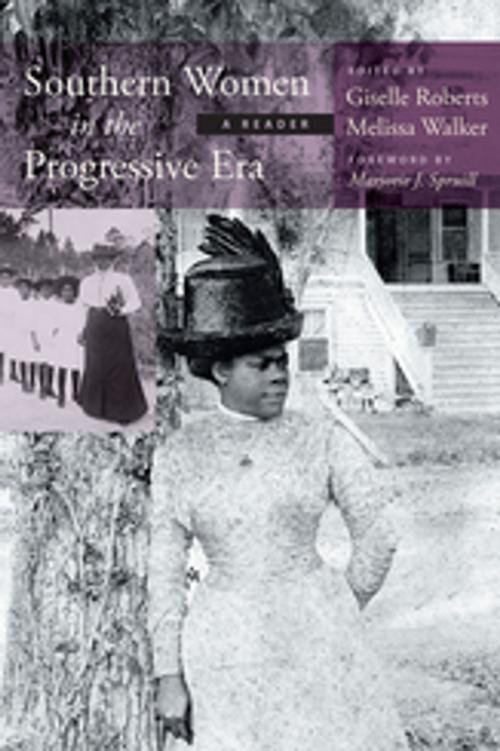| Author: | Carol Bleser | ISBN: | 9781611179262 |
| Publisher: | University of South Carolina Press | Publication: | February 7, 2019 |
| Imprint: | University of South Carolina Press | Language: | English |
| Author: | Carol Bleser |
| ISBN: | 9781611179262 |
| Publisher: | University of South Carolina Press |
| Publication: | February 7, 2019 |
| Imprint: | University of South Carolina Press |
| Language: | English |
From the 1890s to the end of World War I, the reformers who called themselves progressives helped transform the United States, and many women filled their ranks. Through solo efforts and voluntary associations, both national and regional, women agitated for change, addressing issues such as poverty, suffrage, urban overcrowding, and public health. Southern Women in the Progressive Era presents the stories of a diverse group of southern women—African Americans, working-class women, teachers, nurses, and activists—in their own words, casting a fresh light on one of the most dynamic eras in U.S. history. These women hailed from Virginia to Florida and from South Carolina to Texas and wrote in a variety of genres, from correspondence and speeches to bureaucratic reports, autobiographies, and editorials. Included in this volume, to name but a few of the selections, are the previously unpublished memoir of the civil rights activist Mary McLeod Bethune, who founded a school for black children; the correspondence of a textile worker, Anthelia Holt, whose musings to a friend reveal the day-to-day joys and hardships of mill-town life; the letters of the educator and agricultural field agent Henrietta Aiken Kelly, who attempted to introduce silk culture to southern farmers; and the speeches of the popular novelist Mary Johnson, who fought for women’s voting rights. Always illuminating and often inspiring, each story highlights the part that regional identity—particularly race—played in health and education reform, suffrage campaigns, and women’s club work. Together these women’s voices reveal the promise of the Progressive Era, as well as its limitations, as women sought to redefine their role as workers and citizens of the United States.
From the 1890s to the end of World War I, the reformers who called themselves progressives helped transform the United States, and many women filled their ranks. Through solo efforts and voluntary associations, both national and regional, women agitated for change, addressing issues such as poverty, suffrage, urban overcrowding, and public health. Southern Women in the Progressive Era presents the stories of a diverse group of southern women—African Americans, working-class women, teachers, nurses, and activists—in their own words, casting a fresh light on one of the most dynamic eras in U.S. history. These women hailed from Virginia to Florida and from South Carolina to Texas and wrote in a variety of genres, from correspondence and speeches to bureaucratic reports, autobiographies, and editorials. Included in this volume, to name but a few of the selections, are the previously unpublished memoir of the civil rights activist Mary McLeod Bethune, who founded a school for black children; the correspondence of a textile worker, Anthelia Holt, whose musings to a friend reveal the day-to-day joys and hardships of mill-town life; the letters of the educator and agricultural field agent Henrietta Aiken Kelly, who attempted to introduce silk culture to southern farmers; and the speeches of the popular novelist Mary Johnson, who fought for women’s voting rights. Always illuminating and often inspiring, each story highlights the part that regional identity—particularly race—played in health and education reform, suffrage campaigns, and women’s club work. Together these women’s voices reveal the promise of the Progressive Era, as well as its limitations, as women sought to redefine their role as workers and citizens of the United States.















